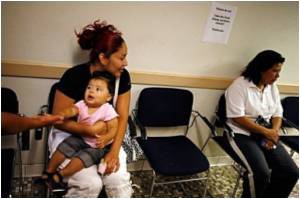The number of children with speech difficulties has leapt 70 per cent in six years, reveals a large study.

The Government-funded study revealed that the number of schoolchildren needing expert help for speech and language difficulties rose 71 per cent between 2005 - when reliable records began - and 2011.
The analysis, part of the Better Communication Research Programme, found that 2.2 per cent of youngsters aged five to 16 were classed as having difficulties in 2011 - some 135,700.
The children's charity I CAN cited that other studies had suggested that 1.2million youngsters of all ages across the UK have some form of communication problem.
They include children with specific conditions that lead to speech problems and others whose environment may play a part in their language difficulties.
The charity said that 50 per cent of children in some parts of the UK - particularly areas of social disadvantage - start school with delayed language.
Advertisement
Screen-based technology - including TVs, games consoles, smartphones and computers - was increasingly used to occupy children instead of traditional family activities such as learning nursery rhymes and eating together, she warned.
Advertisement
Many reasons had been put forward to explain the trend, including the demise of family meal times and even the advent of central heating, which put an end to the days of families congregating around the fire in one room, she said.
Source-ANI











